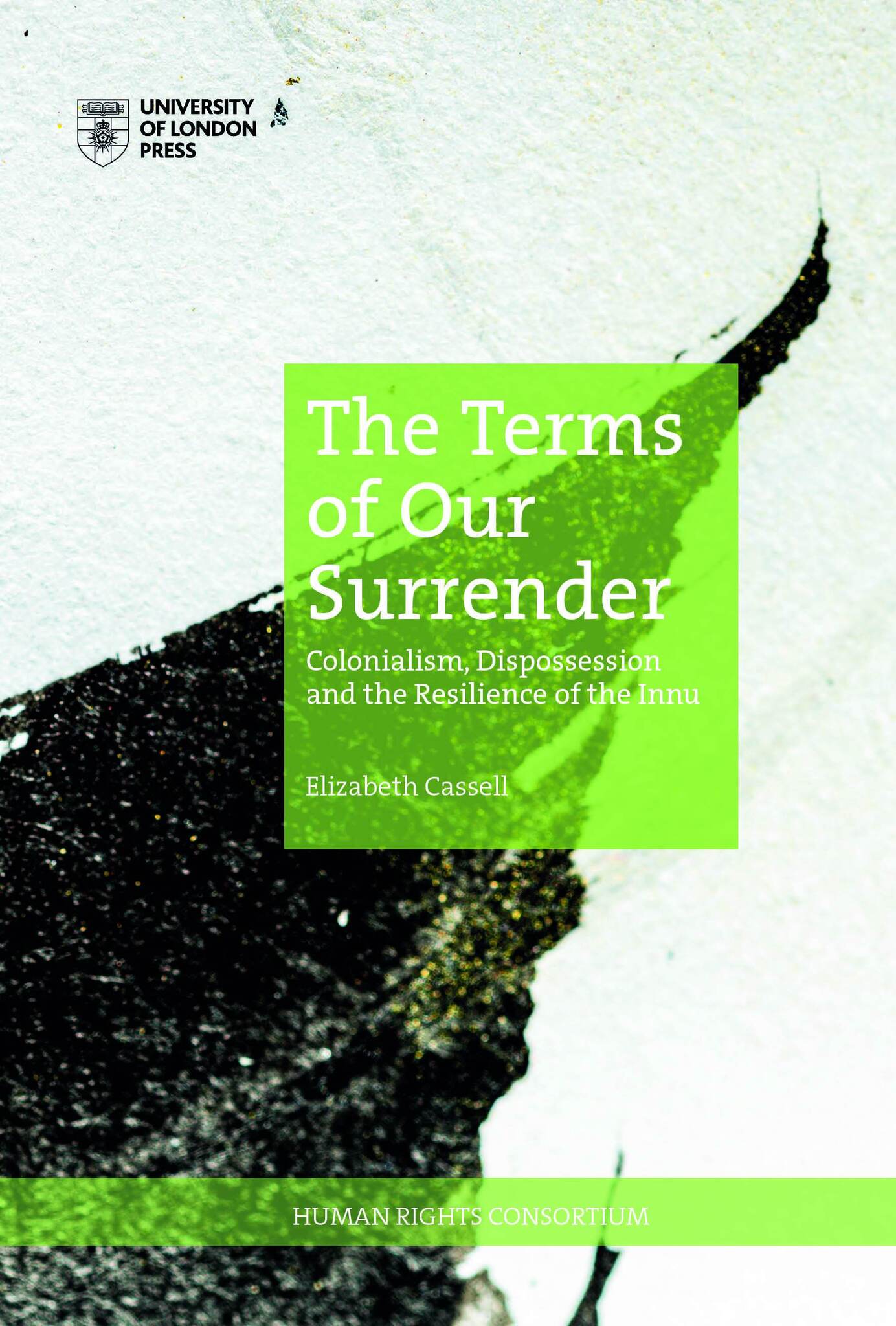We're sorry. An error has occurred
Please cancel or retry.
The Terms of Our Surrender

Some error occured while loading the Quick View. Please close the Quick View and try reloading the page.
Couldn't load pickup availability
- Format:
-
01 October 2021

Based on extensive fieldwork and oral history, The Terms of Our Surrender is a powerful critical appraisal of unceded indigenous land ownership in eastern Canada. Set against an ethnographic, historical and legal framework, the book traces the myriad ways the Canadian state has successfully evaded the 1763 Royal Proclamation that guaranteed First Nations people a right to their land and way of life.
Focusing on the Innu of Quebec and Labrador, whose land has been taken for resource extraction and development, the book strips back the fiduciary duty to its origins, challenging the inroads which have been made on the nature and extent of indigenous land tenure—arguing for preservation of land ownership and positioning First Nations people as natural land defenders amidst a devastating climate crisis. It offers a voice to the Innu people, detailing the spirituality practices, culture and values that make it impossible for them to willingly cede their land.
The text is intended to bridge the gap in knowledge between legal practitioners and those working at the intersections of human rights, social work and public policy. The book offers a potent template for how we can use the law to fight back against the indignities suffered by all indigenous peoples.

SOCIAL SCIENCE / Indigenous Studies, Indigenous people: governance and politics, POLITICAL SCIENCE / Human Rights, LAW / Discrimination, LAW / Elder Law, LAW / Ethics & Professional Responsibility, LAW / Indigenous Law & Legal Systems, LAW / Housing & Urban Development, Human rights, civil rights, Environmental economics, Green politics / ecopolitics / environmentalism

"Joining together robust historical and socio-legal research with an activist spirit, 'The Terms of Our Surrender' brings fresh understanding to ongoing colonialism in North America. The scrupulous documentation and argument in this book will help correct any misapprehensions about the benign nature of Canada’s treatment of indigenous peoples."
-Professor Colin Samson (author of The Colonialism of Human Rights: Ongoing Hypocrisies of Western Liberalism)
Part 1: The Innu Chapter 1: Innu/Canadian Relations In Their Social Context Chapter 2: The Innu left to their fate in Schefferville Chapter 3: Matimekush Lac John Today Chapter 4: Legacies of the Past: Barriers to Effective Negotiation Chapter 5: Racis
Part 2: The Royal Proclamation and Questions of Trust Over Indigenous Land Chapter 6: Historical Background Chapter 7: The Personal Fiduciary Duty Chapter 7: Bending the Law to the Needs of Settlement Chapter 8: The Honour of the Crown, the Duty to Consult and the United Nations Declaration on the Rights of Indigenous Peoples
Part Three: The Modern Treaties and Canada’s Comprehensive Claims Policy Chapter 9: The James Bay Project: The Plot to Drown the Northern Woods Chapter 10: The Malouf Judgment - Chief Robert Kanatewat et al v La Societe de Daveloppement de la Baie James et al et La Commission Hydro-Electrique de Quebec [1974] RP 38 Chapter 11: Negotiating the James Bay and Northern Quebec Agreement Chapter 12: The Aftermath of Signing the James Bay Agreement Chapter 13: The Comprehensive Land Claims Policy
Part Four: The Innu Experience of the Comprehensive Land Claims Process Chapter 14: All that is Left to Us is the Terms of our Surrender: Negotiations to Recover Lost Innu Lands Chapter 15: The New Dawn Agreement Chapter 16: The Position of the Innu Who Live in Quebec Chapter 17: Construction and Protest at Muskrat Falls
Part Five: Citizens Plus or Parallel Paths? Chapter 18: Academic Solutions Chapter 19: Indigenous Solutions Chapter 20: Citizens Plus or Parallel Paths?



